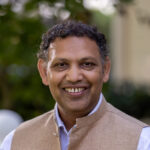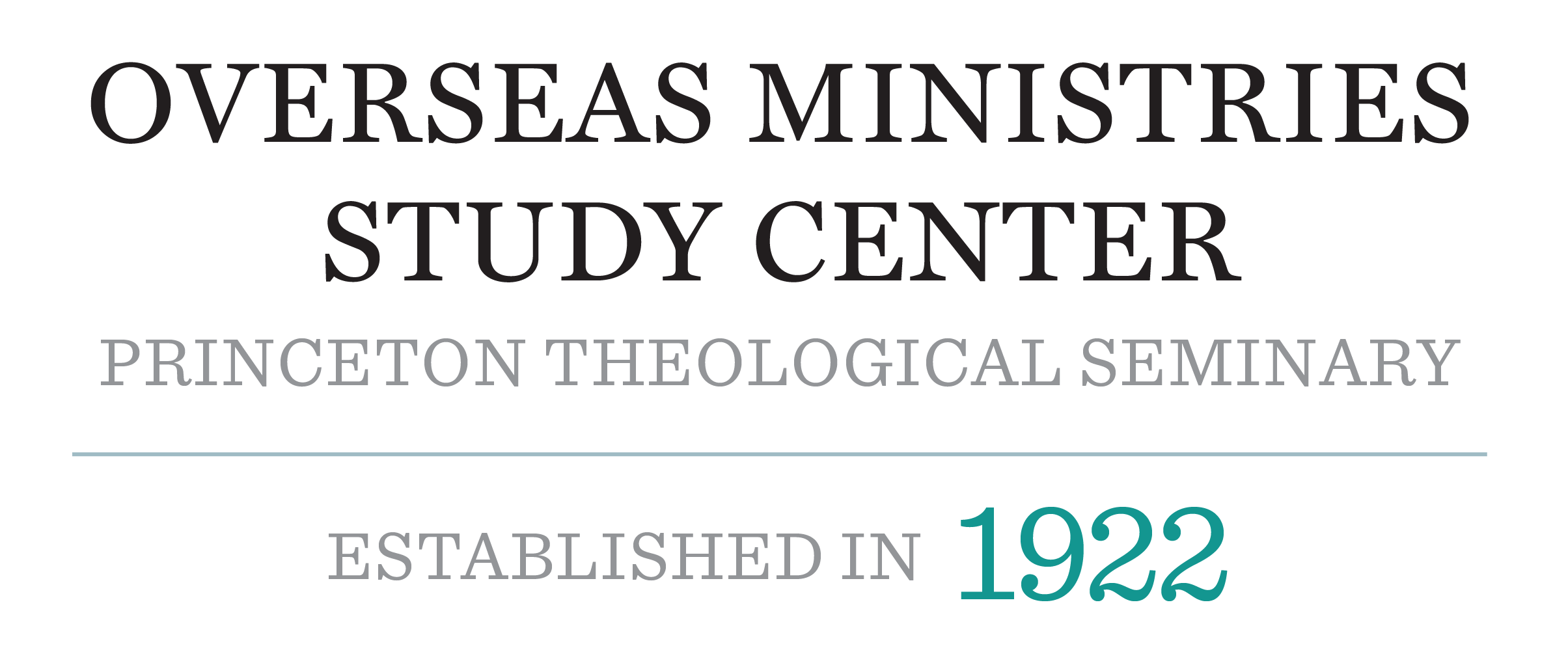By Eric Sarwar

Revd Dr. Eric Sarwar (Ph.D. in Intercultural Studies from Fuller Theological Seminary, CA, USA) is a gifted musician, minister, and missiologist. He is the Founding President of Tehillim School of Church Music & Worship (www.tehillimpakistan.com), discovering in music and the Psalms a surprising language for transcending boundaries in his native Pakistan. As a songwriter and composer, Dr. Sarwar has produced four albums and authored five books on worship and music studies in the Urdu language in Pakistan.
On May 25, 2024, a violent mob attacked a Christian colony following blasphemy charges, showing the ongoing persecution of Christians in Islamic countries like Pakistan.[1] For 1000 years, all Eastern patriarchal sees, except Rome, were under Muslim rule (Amjad Ali 2011; Boyce and Sarah 1996). The Arab Muslim conquests significantly altered the religious and geopolitical landscape of the Mediterranean from the 10th to the 15th century. Formerly Christian states, known as the “house of war” (dar al-Harab), were incorporated into the “house of Islam” (dār al-Islām). In 1453, Constantinople was conquered by Sultan Muhammad II. Following this, Sultan Suleiman I (1520-1566) succeeded in capturing Hungary in 1526 and set his sights on invading the gates of Vienna, Austria, in 1529. The question of how Europe should respond to the Ottoman military campaigns in Hungary became increasingly pressing.[2]
Before Luther, many medieval theologians, from John of Damascus (c. 676‒749) to Nicholas of Cusa (1401‒1464), and Eastern Christians like Theodore abū Qurrah (c. 750‒823), had also devoted significant attention to the study of Islam due to their proximity to it.[3] Roman Catholic polemicists, including John of Damascus in the 8th Century, regarded Islam as a Christian heresy. Scholars note that Martin Luther inherited a critical and polemical view of Islam from the Middle Ages. Despite the limited exposure of the Sixteenth-century reformers to Islam, Luther’s viewpoints on Islam revolved around theological and social considerations.[4] Luther expressed two specific concerns about Islam: firstly, the translation of the Qur’an into Latin, and secondly, the moral values of Muslim society.
What did Martin Luther, a pivotal figure in Protestantism, think about Islam? Specifically, what were Luther’s insights into Islamic society, the Quran, and the Arabic language? These questions delve into the heart of this research, highlighting the profound impact of Luther’s perspectives on studying Islam. Luther addressed the pope’s call for a crusade and his inclination towards war by focusing on spiritual practices such as prayer and repentance. He believed that the scriptures, mainly Daniel 7, prophesied the rise of the Turks. Luther anticipated that Christians would convert to Islam, so he dedicated much of his efforts to studying and understanding the theology and culture of the Turks to prepare and encourage Christians to resist. This led to his involvement in researching and publishing a Latin translation of the Qur’ān in 1543.

Luther dedicated much time to studying a translation created in the Middle Ages, likely by Robert of Ketton. Luther was determined to make the Qur’an more accessible as a countermeasure and even wrote two prefaces on Islam for two different editions.[5] The first was the Libellus, a tract “…on the religion and customs of the Turks.” In 1543, when Swiss theologian Theodore Bibliander proposed to publish a Latin translation of the Qur’an, he faced opposition from religious authorities in Basel. Luther stepped in to support the initiative. Subsequently, Luther was requested to write the preface for the new Latin translation of the 1543 Qur’an. These actions contributed to developing a “sentiment of property” regarding the Qur’an within Protestantism, as described by historian Leicester Hamilton.
The introductory comments on the Latin translation of the Qur’an by Bibliander suggests that reading the Qur’an was the best way to learn Arabic, a notion specific to Protestants. This contrasts with the Catholic approach, as Catholics tended to rely on Christian sources in Arabic, particularly those by Maronites. In the 16th century, Protestants found that studying Islam and Arabic helped bridge gaps in interpreting biblical Hebrew. This unique aspect of Protestantism involved using Qur’anic Arabic within the framework of exegesis to bring Hebrew closer to Arabic (Léchot 2022). While the link between Semitic languages had been recognized long before, the 16th-century Protestants were distinct in their consideration of Arabic when encountering unclear passages in the Old Testament. They regularly turned to Arabic for philological and etymological comparisons to better understand and interpret such passages.
Luther’s theology of repentance and piety aligns with many facets of Muslim society. He saw Ottoman society as a model of virtue for the West after he read the Qur’an. This led Luther to urge his contemporaries to ‘repent.’ His focus on penitence and piety was the main reason for his interest in the Qur’an. Luther believed that ethics and morals are not contingent on faith in Jesus Christ or salvation and that faith in Jesus Christ does not contradict ethics. He also noted that Muslim society embodies specific natural principles and virtues, which led him to remark, “They are more virtuous” (Léchot 2022). Luther suggested that the moral order is connected to natural law or natural religion (Islam), similar to the Decalogue, which each person has possessed since creation.
Reformation Christianity emphasizes the doctrine of simul iustus et peccator -simultaneously righteous and sinner. Christians in Pakistan, facing severe religious extremism, are urged to embrace their faith and follow Jesus. Those in the Western world should reflect on the compromises they may have made to avoid persecution by the state and society. We need to revisit our missiology and theology in light of Islam’s influence and rethink our relationship with our Muslim neighbors. Luther’s legacy highlights the significance of engaging with Islam in shaping Protestant identity in the Western hemisphere. Whether we are cradle Christian, convert, revert Christian, let’s actively engage with our religious neighbor and encourage global Christianity. [6]
[1] https://www.dawn.com/news/1836074/more-than-100-arrested-for-mob-violence-in-sargodha, Accessed
[2] Francisco, Adam S.2016. Martin Luther, Islam, and the Ottoman Turks, https://doi.org/10.1093/acrefore/9780199340378.013.273 , Accessed on April 2024. https://oxfordre.com/religion/display/10.1093/acrefore/9780199340378.001.0001/acrefore-9780199340378-e-273
[3] John C. Lamoreaux, Theodore Abū Qurrah (Provo, UT: Brigham Young University Press, 2005).
[4] Pierre-Olivier Léchot, professor of modern history at the Protestant Institute of Theology in Paris, publish “Luther et Mahomet. Le protestantisme d’Europe occidentale devant l’islam 16e-18e siècles” (Cerf). https://pluriel.fuce.eu/videos/protestantism-and-islam/?lang=en, Accessed on October 26, 2023.
[5] Boyce. James L. and Henrich, Sarah.1996. “Martin Luther–Translations of Two Prefaces on Islam: Preface to the Libellus de rituet moribus Turcorum (1530), and Preface to Bibliander’s Edition of the Qur’an (1543). Word & World, vol.XVI, num.2, Spring 1996
[6] Charles Amjad Ali.2013. Islam: A Mission Failed. https://vimeo.com/59154610



